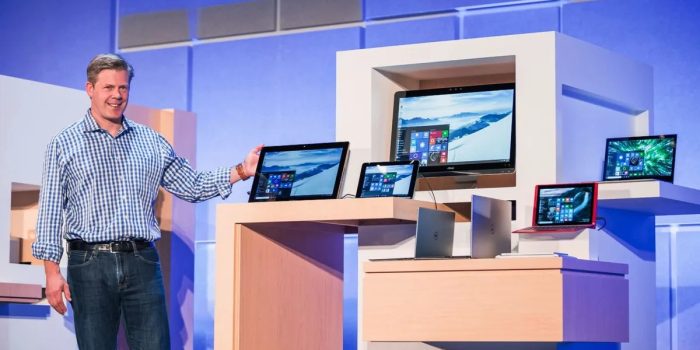Microsoft’s recent announcement to end support for Windows 10 by October 2025 has raised concerns about the potential environmental impact, with experts warning that PCs incompatible with Windows 11 upgrades might end up as electronic waste, contributing to a significant environmental burden.
While Microsoft plans to continue providing security updates for Windows 10 until 2028, the catch lies in the compatibility with Windows 11. Canalys Research suggests that even functional computers could see a drastic drop in demand due to potential security issues if they are not upgraded to Windows 11 or the planned next-generation Windows operating systems. Microsoft has communicated that installing Windows 11 on devices not meeting the minimum system requirements is not recommended, and such devices may no longer receive updates, including crucial security updates.

To address this concern, Microsoft has introduced the PC Health Check app, allowing users to assess whether their device is eligible for the Windows 11 upgrade and identify any components that do not meet the minimum requirements. For those facing incompatibility issues, Microsoft plans to offer security updates for Windows 10 devices until 2028 for an undisclosed annual fee.
However, the potential pricing structure for extended support raises questions about the cost-effectiveness of upgrading versus replacing PCs. Canalys suggests that migrating to newer PCs might be more cost-effective, potentially leading to increased disposal of older PCs and generating substantial electronic waste.
An alternative option for users facing incompatibility issues is upgrading their existing machine’s hardware. While this can be a viable solution, the report indicates that purchasing a new machine with a warranty might often be more cost-effective. Additionally, switching to open-source operating systems like Linux is presented as a potential solution for those willing to explore alternatives.
Concerns about the environmental impact of disposing of devices not supporting Windows 11 have been raised, but Microsoft has not responded to requests for comments on this matter. The disposal of hard drives from personal computers and data storage servers, however, can contribute to sustainable technologies. Companies like Noveon Magnetics emphasize the role of recycling end-of-life computers to obtain materials for electric vehicle motors and renewable power generation.
On a positive note, the report highlights that recycling efforts can mitigate the environmental impact. Redwood Materials, a battery recycling company, claims that lithium, cobalt, nickel, and copper can be recycled from batteries almost infinitely, reducing the environmental footprint associated with electronic waste.
In summary, Microsoft’s decision to end support for Windows 10 has raised concerns about potential electronic waste and environmental impact. Users facing incompatibility issues with Windows 11 have various options, including upgrading hardware, purchasing new machines, exploring open-source alternatives, or considering the environmental impact of disposal. Recycling efforts, particularly in the battery industry, offer a positive aspect in mitigating environmental consequences.


